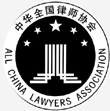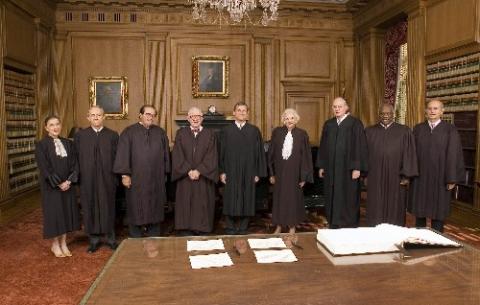上海婚姻律师
你在这里
civil procedure
Chapter 1 Introduction
Generally speaking, the rules of civil procedure determine how a civil case will come to trial. Lawyers use the Federal Rules of Civil Procedure for proceedings in the federal courts. For proceedings in state courts,lawyers would use the applicable state rules of civil procedure,such as the Illinois Code of Civil Procedure.
Rule 1 of the Federal Rules of Civil Procedure sets forth the scope of the rules:
These rules govern the procedure in the United States district court in all suits of a civil nature whether cognizable as cases at law or in equity or inadmiralty. They shall be construed and administered to secure the just,speedy,and inexpensive determination of every action.
- E the case is a criminal case, the attorneys and the judge would follow the Federal(or State) Rules of Criminal Procedure.
- Personal Jurisdiction
Personal jurisdiction refers to the ability of a court to exercise power over a particular defendant or item of property. It may be categorized as in personam,in rem,or quasi in rem. The primary limitations on a court’s power to exercise personal jurisdiction are found in the United States Constitution and state statutes Subject Matter Jurisdiction
The subject matter jurisdiction of the federal courts is limited to that authorized by the Constitution as implemented by federal statute and decisional law. In general, it may be categorized as follows;
- Diversity of Citizenship Jurisdiction
Diversity of citizenship jurisdiction under 28 U. S. C. section 1332 is grounded historically in the desire to protect out - of - state from local prejudice. Its main requirement is that there is complete diversity between opposing parties. Each plaintiff must be of diverse citizenship from each defendant. Also,the amount in controversy must exceed $75,000.
- Federal Question Jurisdiction
The principal problem in this area is to determine when an action" arises under" federal law. A secondary problem is to know what types of actions are within the exclusive jurisdiction of the federal courts under other specific statutes.
- Removal Jurisdiction
Removal jurisdiction allows defendants to remove an action brought in a state court to a federal court if the federal court would have had original jurisdiction over the action.
- Supplemental Jurisdiction
The doctrine of supplemental jurisdiction is codified under Section 1367 and includes under a single name the concepts of" ancillary" and" pendent" jurisdiction. In any form, supplemental jurisdiction allows a federal court to entertain certain claims over which it would have no independent basis of subject matter jurisdiction,i. e. ,claims that do not satisfy diversity or federal question jurisdiction requirements. It is important to note that supplemental jurisdiction operates only after a claim has invoked federal subject matter jurisdiction, after the case is properly in federal court.
III. Venue
Venue is the designation of the proper district in which to bring an action. Venue will de- , pend on the nature of the jurisdiction (i. e. , whether federal question or diversity of citizenship) ,and on the nature of the parties(i. e. , whether corporate or natural persons).
- Discovery
Discovery issues principally revolve around the scope of the examination allowed in discovery, the uses of depositions at trial,and the available methods of enforcing discovery rights.
- Multiple Parties
.. Multiple party questions concern whether various types of joinder are permitted under federal law and,if so,whether there is a jurisdictional basis for a particular attempted joinder. The majority of the issues that arise in this area are grounded in the interpretation or application of statutes and the Federal Rules of Civil Procedure( "Federal Rules" ) ,and also require knowledge of subject matter jurisdictional bases, especially supplemental jurisdiction.

 邱国开律师,系本站主编,在司法机关从事过侦查和公诉工作数年,现执业于上海博和汉商律师事务所,成功代理过大量婚姻继承等民事案件,专注于婚姻法、继承法等领域的研究。服务领域包括婚姻家庭案件代理、企业法律顾问等。执业证号为13101201210136994
邱国开律师,系本站主编,在司法机关从事过侦查和公诉工作数年,现执业于上海博和汉商律师事务所,成功代理过大量婚姻继承等民事案件,专注于婚姻法、继承法等领域的研究。服务领域包括婚姻家庭案件代理、企业法律顾问等。执业证号为13101201210136994




